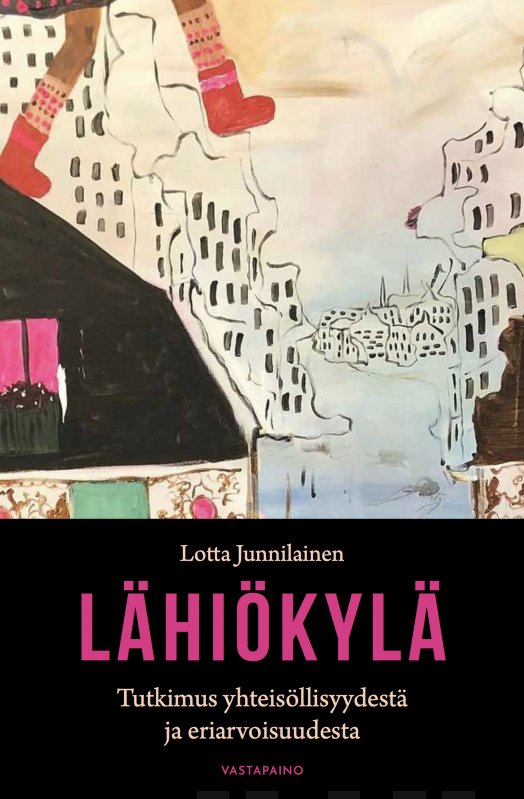Archive for June 2019
Lähiökylä – Tutkimus yhteisöllisyydestä ja eriarvoisuudesta
Tutkija-kirjailija Lotta Junnilaisen kirjassa kuvataan kahden vuokratalolähiön arkea. Teos on tutkimus suomalaisen yhteiskunnan eriarvoistumisesta ja kaupunkien eriytymisestä. Se on kuvaus niukkuudesta, epävarmuudesta ja turhautumisesta, mutta myös yhteisöllisyydestä ja solidaarisuudesta.
Read MoreGroup formation, styles, and grammars of commonality in local activism
In her article, published in the British Journal of Sociology in 2018, Eeva Luhtakallio argues that in order to analyse democracy as a pattern constantly processed in a given society, it is useful to look at activist groups’ agenda setting and recruitment principles, group bonds and boundaries, and how these actions direct and influence ways of creating the common. Based on an ethnographic study on bicycle activism in Helsinki, Finland, the article describes a local critical mass movement that was successful in promoting a bicycle friendly and sustainable city, yet dissolved due to lack of people involved, and the bicycle demonstrations stopped at a moment of high public interest.
Read MoreSnapshots of 21st Century Citizenship: New Approaches to Young Citizens’ Political Practices (12–13 Dec)
Two-day seminar, Tampere University
Read MoreEngagements, grammars, and the public: From the liberal grammar to individual interests
Veikko Eranti’s article in European Journal of Cultural and Political Sociology 5(1-2), 2018 argues that the way the sociology of engagements is currently formulated does not sufficiently allow for analysing public participation and disputes in situations where individual interests play a crucial role in public debates. The article presents a slight reformulation of what Thévenot calls the grammar of individuals in a liberal public (sic), based on a) an understanding of how individual interests relate to the common good and general will, b) the constitution of legitimate actors within polities, and c) the separation between the levels of generality and publicity. This reformulation might be called the grammar of individual interests, clarifying and simplifying earlier terminology.
Read More


